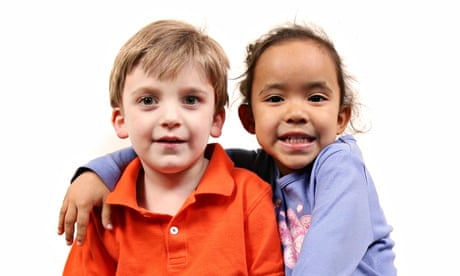People often ask me if I look forward to becoming a grandmother. With my two eldest in their 20s, it's a fair enough question, but how to answer it? I am not in denial about my age (much), but I feel as prepared for this as I did for motherhood itself: beyond regarding it as some new experience, I am not ready at all. Fundamentally, though, this one is not about me. It's about the choices my daughters have and what circumstances they find themselves in.
And all this is changing drastically in ways that the dominant discourse has yet to absorb. At the moment it's looking as if a quarter of women born in the 1970s will be childless. Whether we call this childless or childfree depends on a whole set of narratives that are procreating rapidly but are really divisive attempts to isolate women instead of uniting us.
This is not just happening for women either. All kinds of people may be unhappy or ambivalent about their childlessness, but find few spaces in which to express this.
Certainly my generation tetchily struggled to have it all, and many of us failed in the end to manage the perfect work/children/relationship fantasy. Watching younger generations, I can see how that has manoeuvred them into retro lifestyles that are still baffling to me. Some want to get engaged, which I thought was the province only of daft 14-year-olds and public toilets. They want flash weddings and to procreate only with "the one". Thus the bucketlist required for motherhood is as fixed as it ever was. If they are not partnered up, or forced to confront the reality of taking a few years out just when they are on the up, job-wise, they may begin to understand all that hoo-ha about maternity leave, equal pay, pensions and family-friendly policies.
But however people choose to identify themselves, there is a solid group now of mid-40s women who are childless, though they did definitely did want them. Jody Day has written extremely well about this and set up an organisation called Gateway Women for those who want to end the isolation of what she calls "childless–by-circumstance women". She describes all the different situations that lead to this, from infertility to chronic illness to what she calls social "infertility": not finding a partner, not wanting to go it alone, and not being able to afford it. Day talks of working through grief and sadness, of relationships breaking down during fertility treatment, and the false promises of parts of the IVF industry. What it mostly brings up for me is not how little I have in common with someone who does not have children, but how much. I envy their "freedom", they envy my "unconditional love" – but these concepts are projections. Real life is far messier.
The conservative take is that more of us are leading solitary lives when we should be breeding in captivity. A woman who had a teenage abortion will now describe feeling regretful and sad, even though she did not want to bring up a child at 17. This central narrative depends on one thing: motherhood, or the lack of it, being the core identity of every woman's life. Yet as I listen to friends struggle with this, I fear that if we put all our eggs in the basket of motherhood, we are bound for disappointment.
We must fully appreciate that those without kids subsidise those of us with them and contribute in myriad ways. I have never objected to those who want child-free spaces, for instance. When I read of the supposed workplace resentment of non-mothers against mothers, it feels completely fabricated. Rather I experience people at different stages of life wanting different things, so as kids become more independent, parents may want much more of a social life. What I despair at is this idea of children as private property that no one who hasn't given birth should concern themselves with. All the daft categories, from "career bitch" to "tiger mother" to "spinster", can't sum up the complexities of how we live. Some women without children need to "heal". Some don't. Some with children feel as existentially lonely as those without. Children are no guarantee of care in old age, or even company.
The kind of feminism I espouse respects individual choice but seeks to improve the context in which these choices occur. I hope my own children feel supported whatever they decide. I don't want them to be labelled sad if they don't reproduce, any more than I would want them to lose income and the prospect of promotion if they do.
Having kids gives meaning to lives, but this is not the only way to have a meaningful and wonderful life. As a mother I am more than happy to speak up for those who are childless by circumstance or choice. I trust they would do the same for me. As hard as people may work to split us into antagonistic groups, the fact remains that we really are in all this together. If it takes a village to a raise a child then it is worth saying that those who reproduce and those who don't do not live in separate villages. We are, in fact, next-door neighbours.

